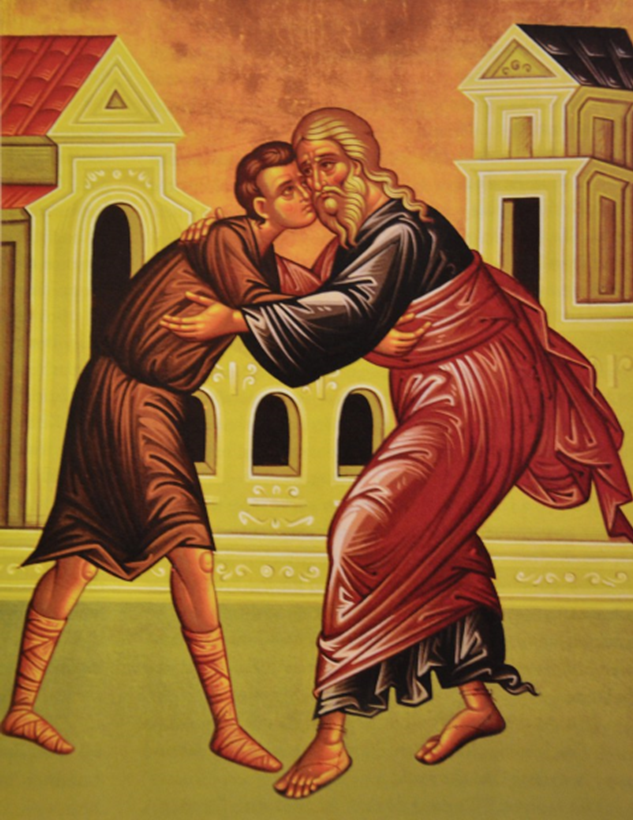4th Sunday in Lent
March 28, 2025
Gospel Reflection
Luke 15:18

This Sunday of Lent marks a high point in our approach to Holy Week and Easter—an anticipation of Easter joy. This is the meaning of the traditional name—Laetare (“Rejoice”) Sunday. The Latin word “laetare” is found at the beginning of the Entrance Antiphon for this day—”Rejoice, Jerusalem! Be glad for her, you who love her; rejoice with her, you who mourned for her, and you will find contentment at her consoling breast.” This day we celebrate the undying love that God holds for his people, a love that is full of mercy and forgiveness, even in the face of ingratitude and unfaithfulness.
Numerous times, the Israelites showed themselves ungrateful, and forgetful of God during the time after their liberation from Egyptian oppression, spent in the wilderness of Sinai. Had they been truly repentant and open to God’s guidance through Moses, they would no doubt have been able to leave this place of relative desolation. Still, in the end, God did not go back on his promise to give their descendents a permanent home of their own, in a land able to provide rich food and shelter (1st reading).
In the parable of Jesus (today’s Gospel) regarding the prodigal, that is, “wasteful” son , we see this same kind of ungrateful and irresponsible behaviour in a young man who abruptly leaves his father’s household. He insists, prematurely, on his portion of the inheritance, and goes off to enjoy himself in a way both selfish and foolish. He later finds himself in a place as desolate as Sinai, desperate to free himself from want. Only then does he reflect on the good that came to him from his own father, and the ingratitude of his own heart. Though he expects very little will be given to him on going back home, he finds instead the open arms of a loving father, who treats him to a great banquet of rich food in honour of his return.
The father of the parable is, of course, God. The prodigal son is, in one measure or another, each one of us, when we become forgetful of his presence or neglectful of the love and service we owe Him. In the lives of some of us, perhaps, the story of the prodigal son has been played out rather explicitly. We may have created a desolate place of our own through serious sins of one kind or another, losing the close relationship with God our Father given to us through Christ in baptism. But we came to our senses realizing that certain sufferings were brought on by ourselves. We made a good confession and had the joyful experience of feeling closer to our Father than ever.
A word really needs to be said about the other son who features in Jesus’ parable, the one who never left. Though he stayed on his father’s property and did the essential chores, his efforts must have been half-hearted and even resentful at times. On top of everything he had the gall to think his father was exploiting him and keeping him from having a good time. All this came to the surface on his brother’s return. There was so little love in his heart that, instead of being happy to see his brother reconciled, he brought up all his own self-centred complaints. This son could also be a picture of us if we embraced God’s commandments as an unreasonable burden instead of seeing behind them the love of a merciful Father who is preparing us for a rich inheritance of holiness, fruitfulness, and joy.
As Pope Francis said: “The parable is left open-ended: we do not know what the older son decided to do. And this is an incentive for us. This Gospel passage teaches us that we all need to enter the House of the Father and to share in his joy, in his feast of mercy and of brotherhood. Brothers and sisters, let us open our hearts, in order to be ‘merciful like the Father’!” (General Audience, 11 May 2016)


